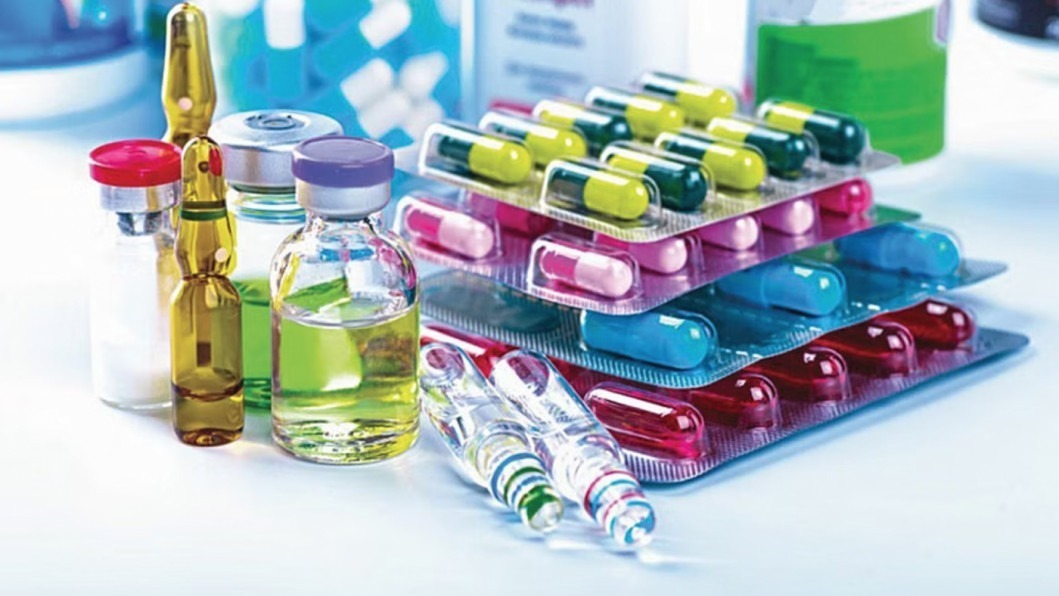LDC graduation unlikely to raise medicine prices, but may affect exports: study

Bangladesh’s graduation from the least developed country to a developing one, in itself, is unlikely to increase the prices of medicine on the local market, but it may affect the exports of the products, according to a study.
The study titled ‘LDC graduation and Bangladesh’s pharmaceutical industry: implications for medicine prices, accessibility, and affordability’, revealed on Saturday mentioned that the prices of medicine could increase due to the other factors, such as structural challenges in the health sector and rising costs of energy, including gas and electricity.
The Research and Policy Integration for Development conducted the study and disseminated the findings at an event at the Hotel Sheraton in the capital Dhaka on Saturday.
‘LDC graduation per se should not be affecting medicine prices. And partly because Bangladesh has incorporated certain WTO- and TRIPS-related flexibility such as choice of patentability, compulsory licensing, and parallel importation into the Bangladesh Patent Act,’ RAPID chairman MA Razzaque said while presenting the study findings.
The prices of medicine would not be increased primarily due to the flexibilities in the Bangladesh Patent Act, which aligns with WTO and TRIPS provisions and excludes pharmaceutical products from patent protection until the country’s graduation from the LDC status.
Furthermore, this exemption may be extended for an additional three years after graduation, in line with a decision made at the WTO’s 13th Ministerial Conference to ensure a smooth transition, Razzaque said.
The study identified that Bangladesh’s current capacity to produce patented medicine was limited, which reduced the likelihood of significant disruptions following graduation.
‘Only about 5.0 to 10 per cent of currently produced drugs are patented, and LDC graduation is unlikely to increase their prices, as these drugs do not meet the novelty criteria for patents post-LDC graduation even if they remain within their patent protection timeframe,’ it said.
The BPA caps royalties for producing patented drugs at a maximum of 4 per cent of local sales revenue, ensuring that prices for new patented medicine remain affordable, the study said.
If negotiations with the patent holder fail to reach this royalty rate, the government can issue a compulsory licence to produce the drugs without the patent holder’s consent, provided there is sufficient domestic production capacity, the RAPID report mentioned.
Razzaque said that any prospect of medicine price increases was a serious concern for a country like Bangladesh, where public health investment remained low.
He highlighted the pharmaceutical industry’s heavy reliance on imported active pharmaceutical ingredients, which could undermine its resilience and global competitiveness.
Post-graduation, the discontinuation of export subsidies, as required by the WTO, could result in a 6.9-per cent decline in pharmaceutical export earnings, the study mentioned.
In Bangladesh, out-of-pocket expenditure on medicine accounts for 73 per cent of total health spending, a stark contrast to the global average of 17 per cent.
According to the Bangladesh Bureau of Statistics, approximately 16.2 per cent of households have at least one member suffering from a chronic illness, and on average, poor households — defined as the bottom 40 per cent by income — spend up to 20 per cent of their income on medicine-related costs.
However, as part of the research findings, Razzaq said that it was technically feasible to maintain the current patent regime for three years beyond graduation, up to 2029.
This possibility arises from a WTO Ministerial Conference decision in February 2023, which introduced a ‘due restraint’ provision.
Under this decision, WTO members agreed to refrain from taking action against graduating LDCs for three years post-graduation.
The study made several policy recommendations to strengthen the pharmaceutical sector, including utilising the three-year post-LDC transition period under WTO rules to maintain royalty-free medicine production and build capacity for patented and high-value drugs.
It emphasised the full operationalisation of the API Industrial Park, the establishment of testing facilities, and the promotion of investment in the sector.
The study called for expanding healthcare accessibility through increased health insurance coverage and targeted subsidies for low-income and vulnerable populations with healthcare needs.
Other suggestions included enhancing institutional and legal capacities and securing an extended pharmaceutical waiver from the WTO.
Bangladesh Association of Pharmaceutical Industries president Abdul Muktadir agreed with the findings of the study, stating that post-LDC graduation, medicine prices in Bangladesh were unlikely to change significantly in the short term.
He said that the accessibility, availability and pricing of medicine were expected to remain largely stable.
Muktadir expressed concerns that while lower medicine prices in Bangladesh, compared with those in countries like India, might seem beneficial, they could jeopardise the financial viability of the pharmaceutical industry.
Persistently low profit margins could lead to closures in the long term, compromising the industry’s ability to support public health objectives, he said.
He also said that Bangladesh’s pharmaceutical sector appeared uncertain due to a severe lack of investment.
Multinational companies have already exited the market, and there are no clear signs of new investments entering the industry, he said.
This stagnation raises serious concerns about the sector’s ability to grow or even sustain its current capacity, Muktadir said.
He emphasised that resolving the energy crisis was key to driving industrial growth.
He urged for a stable and cost-effective energy supply, which would reduce operational costs and enhance the competitiveness of Bangladesh’s pharmaceutical sector.
Chief adviser’s special envoy Lutfey Siddiqi highlighted the need to improve the ease of doing business by focusing on three key areas — streamlining government processes, enhancing business operations, and fostering better communication and collaboration between the government and the private sector.
He said that unlocking greater growth required addressing structural issues to foster a more business-friendly environment.
Director General of Drug Administration Md Akter Hossain said that that the persistent lack of collaboration and support for the pharmaceutical sector continued to be a major challenge.
He said that the challenges faced by the manufacturing and import sectors needed to be addressed comprehensively.
It is essential for relevant government bodies to engage in discussions and consider constructive suggestions and recommendations to resolve the ongoing challenges, he said.
GSK Bangladesh former chairman Masud Khan, commerce ministry additional secretary Md Abdur Rahim Khan, Dhaka University pro-vice-chancellor Sayema Haque Bidisha and RAPID executive director M Abu Eusuf, among others, spoke at the event.
Source: New Age | 23 November 2024






